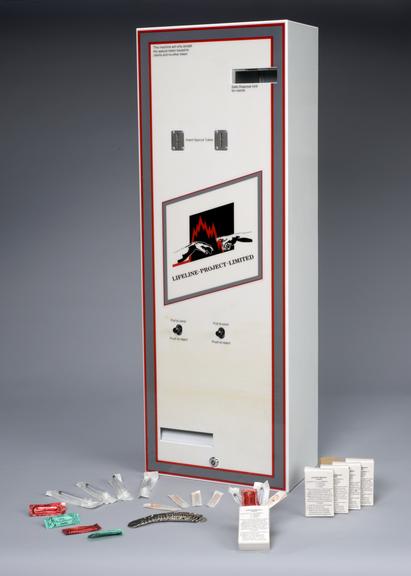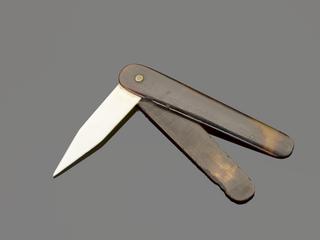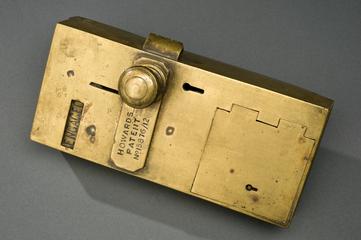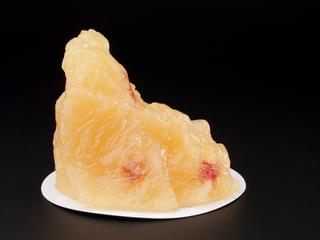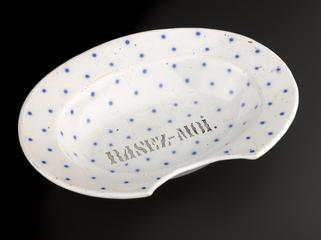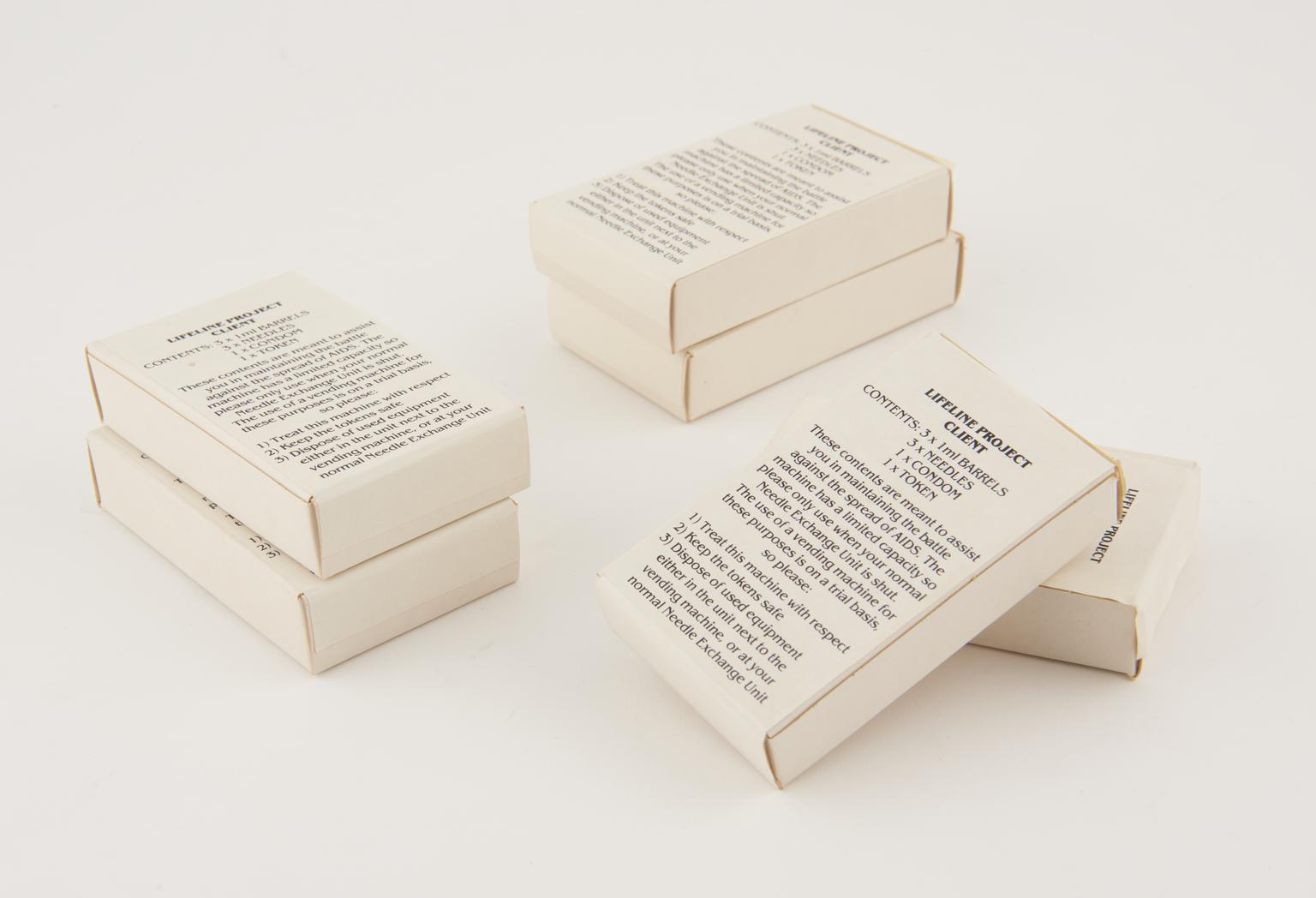
Six empty packets, part of contents of syringe dispensing machine, Europe, 1990-1992
Six empty packets originally containing three barrels, three needles, one condom and one replacement vending token, part of syringe dispensing machine for use by drug addicts to limit the spread of AIDS (HIV), developed by the Lifeline Project Ltd, Manchester, English, 1991
More
This vending machine was the first of its kind and was aimed at preventing the spread of infections such as HIV caused by needle sharing among drug users. Machines like this were to be used if Needle Exchange Units were shut or unavailable in the area. Each user was given a special token to work the machine. The machine distributed packets containing three syringes, one condom and a new token. There is also a special section for the user to deposit used needles. Each machine cost £600.
This project was developed by Lifeline Project Limited, a day centre for drug users based in Manchester. It was founded in 1971 and now has centres across the United Kingdom.
